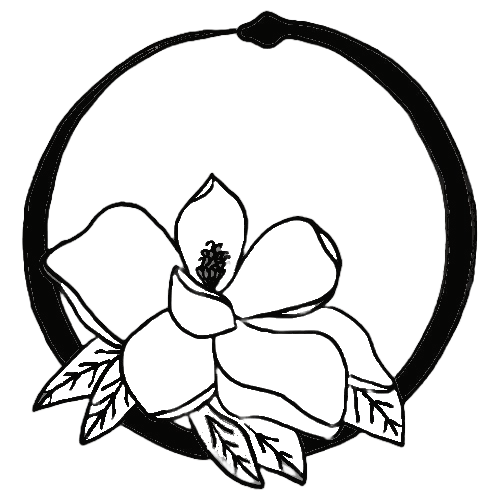Thinking of Death in the garden
I moved recently and finally found the moment to get acquainted with the garden that my housemate has been lovingly cultivating over the past few years. Changing into work clothes and putting my boots on, I expected a reprieve from the world of death and dying I am immersed in on a daily basis. Not that I needed a reprieve from thinking about death and dying, exactly, but moreso a break from the anxiety of how I’m going to support myself by suggesting others think about death and dying, too. As my friend who’s a business coach says, “it’s not an easy sell.” But I digress…
The garden has always been a haven for me. The pleasure of being immersed in a world of plants—their beauty, their scent, their energetic presence—is a godsend to my nervous system. I delight in the mutual exchange of oxygen and carbon dioxide we can offer each other. The garden helps connect me with a world so much larger than myself or any of the other humans I interact with who like to pretend that we are somehow more special or important than other species. This time was no different, except that perhaps my lens of perception has been more acutely focused toward death lately and I was amused but not surprised by how present it was in the garden.
Photo by Adél Grőber on Unsplash
Interacting with the soil, the site of so much decomposition and new life was particularly rich. There were all kinds of bugs: worms, grubs, spiders, a centipede, and more. There were robust mycelial networks around decaying wood, along with a mushroom popping up here or there. It smelled intoxicatingly earthy and the soil felt luxurious in my hands. I revered this locus of the garden’s alchemical magic. I couldn’t see the wholeness of it in just that one snapshot of time, but I knew that death & transformation were playing out, and that the garden would be more fertile from it.
One of my entry points into a deeper connection with land was through composting. It fascinated me that the food scraps and leaves I would mix in the yard would breakdown into material that could help me grow more food. Intuitively, it made sense, but I hadn’t participated with that element of the life cycle before and I was awed it. Where some delight in planting seeds and in carefully tending the new green sprouts, I delight in taking the withered, brown remnants of what those seeds have become and returning them to cycle of life. Many years after my composting initiation, it makes sense that I would be drawn to supporting the process of death. There is something about the chthonic nature of life that stirs deeply in me.
Photo by Chris Yang on Unsplash
When I’m gardening, I can do the things I know to do in order to support and encourage life, but I don’t grow the plants… the plants grow themselves (with much greater help from others than from me). What happens underground, where the root systems interact with unfathomable numbers of microscopic beings, is more or less unknown to me and yet utterly essential. I know I could “learn more” if I wanted to, but I appreciate the mystery of it. Seeing the life-giving capacities of death and decay in the earth body of the garden fills me with a sort of reassurance about our own deaths. I only hope that my body can eventually be as nourishing to the creepy crawlies as the soil in my garden is.


